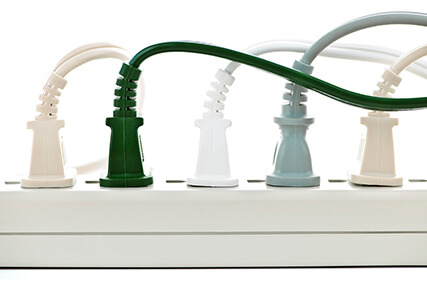Water Heater Usage
1. Lower the temperature on your water heater Lowering the heater by just a few degrees can be a big energy saver. Water heaters tend to use more than 10% of a home’s energy consumption and setting it just a tad lower reduces that amount of electricity it has to use to heat all that water. If you are going out of town, lower the temp as much as you can so that you aren’t heating water that won’t be used for a few days2. Take shorter showers
Using less water means using less energy. While a long, hot shower is sometimes that cure for a stressful day, a short one means a smaller energy bill and less of an environmental impact with reduced use of water. You can also add a lower flow shower head to reduce your water usage.
3. Wash clothing in cold waterWashing your clothes in cold water can equal big savings. There are cold water detergents to help boost cleaning power if you feel your clothes can’t get clean in cool water. You can lower your washer’s energy use by more than 50% with this simple step.
Lighting
4. Use LED lightingSwitching to LED lighting is one of the easiest ways to reduce your energy usage. While LED bulbs are more expensive with initial costs, they last significantly longer than incandescent bulbs and use minimal energy in comparison.
5. Add dimmer switchesDimming lights reduces the amount of electricity flowing to a light bulb and that reduction can add up quickly, especially if your home has lighting fixtures with several bulbs.
Heating and Cooling
6. Bump up your thermostatJust a few degrees’ change in your thermostat can make a huge difference in your home’s energy efficiency. A smart thermostat can bring up to 15% savings on your monthly bill. Smart thermostats can learn your usage habits and suggest changes to help lower your energy use.
7. Change air filters regularlyOne of the best ways to make your energy use more efficient is to make sure you are maintaining appliances to ensure they are working at peak performance. Changing your home’s air filters make sure that your heating and cooling systems are working their best in exchanging air.
Washers and Dryers
8. Fill ‘em upWhen using either your dishwasher or clothes washer, it’s most efficient to fill them to capacity, especially if you are using hot or warm water. Larger loads lead to less frequent use of either washer. This cuts back on the overall amount of water you use in addition to the energy savings.
9. Cut your drying timeUsing dryer balls have been shown to reduce drying time for clothing. Less time in the dryer means less energy used. If you can, consider drying laundry outside to completely eliminate the cost of using your dryer when the weather is agreeable.
General Household
10. Unplug appliances and electronicsThis is a big one! Many appliances and electronics continue to draw power even when they aren’t being actively used. Using power strips for small appliance such as toasters, coffee makers or laptops make it simple to disconnect from power without plugging then in all the time. If you are leaving the home for a few days, unplugging appliances can also give you peace of mind with regard to safety.

